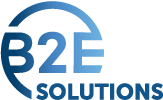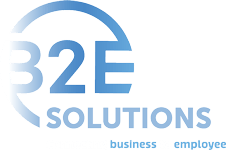Every year, the IRS releases a “most wanted” list — not of criminals — but of the top 12 scams that target employers and employees.
The so-called Dirty Dozen highlights the most prevalent taxpayer-targeted scams. From phishing emails to fake charities, these shady schemes are designed to steal money, identities or both.
The fact that the IRS releases this annual list just as tax season is ramping up is no coincidence. Fraudsters are looking to exploit sensitive and personal information when it is most vulnerable.While some of these scams are easy to spot, cyber criminals are increasingly sophisticated in their attacks. Using email, text, phone calls and other tactics, criminals manipulate employers and employees to relinquish money, pay for fraudulent or unnecessary services, hand over sensitive personal or business data or take other actions that could result in legal trouble and financial loss.
Knowing what to look for is instrumental in keeping every single taxpayer safe — businesses and employees alike. Here’s a look at the IRS’s 2025 top scam list!
1. Email phishing scams
Fake communications (email “phishing” or SMS “smishing”) from entities posing as legitimate organizations in the tax and financial community, including the IRS, state tax agencies and tax software companies, are running rampant. These messages lure taxpayers to click suspicious links, download malware files and share sensitive data, such as passwords, Social Security numbers, bank information and more. Bear in mind, the IRS doesn't initiate contact with taxpayers by email, text messages or social media channels to request personal or financial information.
2. Bad social media advice
File this under “Don’t believe everything you see on the internet.” Social media platforms like TikTok, Instagram, Facebook and YouTube routinely circulate inaccurate tax advice online. These falsely touted “tips” urge viewers to misuse common tax documents.
3. IRS individual online account help from scammers
Watch out for fraudulent tax service providers. Scammers are offering to help taxpayers set up IRS accounts with the goal of gaining unauthorized access to tax and financial information that can be used to commit identity theft.
4. Fake charities
Deceitful organizations are posing as legitimate charities to solicit donations and gain access to personal information. These schemes are particularly active after major disasters and during high-giving seasons. Before making a contribution, always verify a charity's legitimacy using resources like the IRS’s Tax Exemption Organization Search tool.
5. False Fuel Tax Credit claims
Unscrupulous tax return preparers and promoters — including people on social media — are misleading taxpayers into believing they are eligible for the Fuel Tax Credit when they are not. This is a tax credit designed for very specific farming and off highway businesses, for which the vast majority of taxpayers do not qualify.
6. Credits for sick leave and family leave
This specialized credit was designed for individuals self-employed in 2020 and 2021 during the pandemic. The IRS is seeing repeated use of this tax credit (Form 7202) even though it is not supposed to be available for later tax years.
7. Bogus self-employment tax credit
This is another instance of erroneous advice promoted on the internet or by unscrupulous tax service providers. In this case, a non-existent “Self-Employment Tax Credit” misleads taxpayers (namely self-employed and gig workers) into filing false claims.
8. Improper household employment taxes
Taxpayers “invent” fictional household employees and then file Schedule H (Form 1040), Household Employment Taxes to claim a refund based on false sick and/or family medical leave wages they never paid.
9. The overstated withholding scam
Scam artists suggest people make up large income and withholding amounts, as well as the fictional employer supplying those amounts. Taxpayers file the bogus tax return electronically in hopes of getting a substantial refund due to the large amount of falsified withholding. These same fraudsters fail to mention the legal consequences of filing a fraudulent return, putting the taxpayer at risk.
10. Misleading Offers in Compromise
The Offers in Compromise (OIC) program is an important and legitimate service run by the IRS that helps people settle their federal tax debts when they are unable to pay in full. Companies promising they can reduce taxpayer debts at a discount are charging high prices for services that are unnecessary or easily accessible through free IRS resources like the OIC Pre-Qualifier tool.
11. Ghost tax return preparers
Unlicensed “ghost” tax preparers are filing incomplete or false returns, disappearing with taxpayer refunds or charging high fees for their fraudulent services. The IRS encourages people to use a trusted tax professional, and IRS.gov has important information to help people choose a reputable, accredited practitioner.
12. New client scams and spear phishing
Cybercriminals pose as prospective clients, often using fake email addresses to impersonate real taxpayers in an attempt to access a tax professional’s client data or systems. During this process, the tax professional may think they are downloading a potential client's tax information or accessing a site with the potential client's tax information. In reality, they’re attempting to gain access to the tax professional's computer to gain system access.
How to protect against the Dirty Dozen and other scams
The Dirty Dozen is not a comprehensive list of all scams. However, its annual curation creates critical awareness for taxpayers, businesses and tax professionals alike.
Of course, there’s no surefire way to avoid tax scams, but there are precautions you and your employees can take to protect against fraud. Honesty, vigilance and common sense will always help, but it’s also important to equip yourself and your employees with tactical tips and strategies.
To ensure you’re prepared and ready to stand up against the Dirty Dozen and other taxpayer scams, check out our dedicated blog post.










